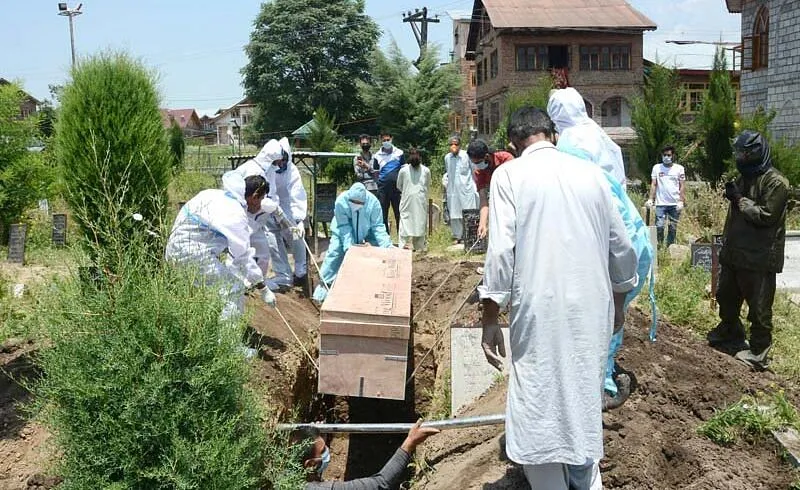In physical terms, death is a loss. It leaves behind family members and friends in utter shock! The sudden loss of a family member or a friend is a hard reality to reconcile with. Each wall echoes with the memory of the lost one and each room speaks of the presence of the loved one amidst the reality of his/her absence.
To condole the bereaved and to help them overcome grief is a social and religious responsibility. COVID does not diminish the responsibility nor does a whatsApp message satisfy it. Condoling and consoling the bereaved is a tradition of the past and a prerequisite of the civilized world. Unfortunately, COVID times have exposed us as callous individuals who shirk from condoling deaths. The horrible tales of how family members of COVID positive deaths were ostracized, victimized and left alone to care for themselves do not speak good of us as a society. The fact that the callousness and indifference is extended to other non-COVID deaths is really disgusting.
If COVID is something that may not leave us too soon and that we may have to live with, should we not learn to condole the deaths that happen in these times? We cannot wait for COVID to be over and then think of condoling the bereaved-can we?
We talk about the philosophy of death, the unreliability of life but we fail to take into account the applicability of this philosophy to our lives. Our life is short, death may strike us any moment and we may need the assistance of our dear ones, distant ones or even strangers. Have we helped someone while he died in these times? Do we deserve help when we die? For Nikah two men may suffice as witness but for death, people are required for ghusl, carrying the body for Jinazah, digging up the grave, lowering the body in the grave and for the make-up of the grave. In non-COVID times we never thought that these acts would become a burden.
COVID should not stop us from fulfilling our duties in an hour of crisis towards our friends, neighbors or relations. We may not lower our own guard but we can still offer help. In the absence of a hug, a kiss, offering a shoulder to cry on, or holding a hand -we can still offer a word of consolation, still help to lower the stress of the family, or provide food, medicine, or any other assistance to the bereaved.
If you are extra cautious about visiting a bereaved family because of your age, vulnerability, or co-morbidity- you may send a younger member of your family or a less vulnerable member to pass on your condolences or to check if the family needs anything.
I had the first-hand experience of interacting with people who condoled me and my family on the death of my father, and as a bereaved, I believe there is a scope of improving our condolence etiquettes; for example, I wondered why everyone wanted to know how my father died. Trust me, it was painful to recount the story so many times. Instead, people could have prayed for his hereafter or advised us for patience. They could have talked good about him or shared with us a good encounter they had with him. People who could not come could have made brief calls from here and abroad. People from offices and workplaces could have sent their representatives rather ignoring the death altogether. Many people woke us up in the early morning hours because they thought mornings were safer. They could have called or messaged to ask if they could come. Many people chose to come long after the days of grief were over without consideration for the availability of people supposed to receive them.
To visit the bereaved after the death of a beloved is obligatory from a religious or social perspective. COVID has put bars on our movement, but with proper precautions, we should not let the family suffer alone but come forward to support them at a critical juncture.
We are losing old time good values, hope our indifference doesn’t prove the old time Kashmiri saying “kabis aayi lathi dawah” – right!
Dr Rumana Makhdoomi, MD (Path), Fellowship Neuro-oncopathology [NIMHANS], Professor, Dept of Pathology. SKIMS, Srinagar, Kashmir






